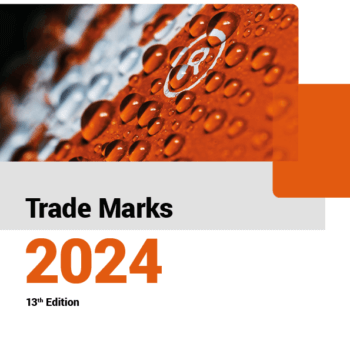
A discussion around the impact of Covid-19 on the branding landscape
On 14 April the IMF issued a stark warning that the global economy was potentially facing the worst recession since the Great Depression of the 1930s. In its April World Economic Outlook the IMF projected global growth in 2020 to fall to -3% as a result of the Covid-19 pandemic and global government actions for lockdown and social distancing. By comparison, the IMF’s year-on-year real GDP growth projection in 2009 following the 2008 financial crisis was -0.1%.
Businesses are being forced to either batten down the hatches and wait until the storm passes, or adapt their business models and find work arounds. What does this current environment mean for a company’s brand? What should a company be doing in these times to protect their branding, and what will the branding landscape look like post Covid-19?
Adaptation
As governments worldwide have brought in social distancing measures, traditional brick and mortar businesses and those reliant upon personal contact have been unable to trade in the way they know best. But as physical methods of sale struggle, consider the opportunities for brands and businesses in the digital space.
Going the other way
A large proportion of the global workforce, including those at the UK IPO, has shifted to working remotely from home. Consumers are spending more time in front of their laptops than ever. This shift in working pattern places significant importance on digital and television advertising. Where coffee breaks are now online chats with friends and family, what opportunities could be had for attracting the consumer’s eye? When the consumer is spending more time at home, generally saving a larger portion of their disposable income, brands which are seen to communicate the most during these times will be those which resonate supreme.
During the lockdown television viewing has increased by around 40%. Notwithstanding this many businesses are pulling their advertising budgets recognising this as an area for savings despite the cost of advertising slots falling. In recognition of this opportunity, luxury watch brand Christopher Ward has decided to go the other way and use the lockdown in the UK to publish its first ever television advert.
Extinguishing one’s advertising budget could result in more than allowing a competitor an advantage – it could lead to the loss of trade mark protection (as advertising is one of the indicators to prove use of a trade mark). Many businesses have ceased trading across the UK and EU due to the pandemic resulting in minimal or even non-existent use of their brand. If a brand owner ceases to use their trade mark for the goods and/or services for which the mark is registered, then a third party may seek to revoke the mark for non-use. While the risks of a non-use attack during the ‘lockdown’ in the UK and EU are low, as there must be a period of five years of non-use, should the economy slip into a severe recession, as predicted, and brand owners operate more limited product and service offerings then brand owners may face non-use attacks from competitors and suffer the partial loss of their trade mark protection. Should the IMF’s recession prediction become true, it would be prudent to use your trade mark for the entirety of the goods and/or services for which is registered to avoid losing protection.
Combatting counterfeits
Lockdown measures in the UK have resulted in the closure of shops selling non-essential goods forcing consumers to look online. As a result of counterfeiters recognizing this as an opportunity, consumers may encounter infringing products when searching online for their favourite brands. Counterfeiting is also happening in relation to digital services, where hackers have created fake sign up pages mimicking popular websites, such as Netflix and Disney+, tricking users to input their personal data.
Businesses may consider reeling in their IP protection as an area to save on budget. Monitoring illicit use of one’s branding however may force the hands of trade mark owners to instead invest in IP enforcement. Fortunately, the UK courts have the digital solutions in place to allow for litigation despite the current lockdown; from issuance of claim forms through to remote hearings. The UK court system has had for several years an online filing system whereby litigants-to-be can issue claims digitally and unperturbed by the current pandemic.
Investment
The opportunities available in the digital world during the 2008 recession are dwarfed by the world we live in today. In 2008, company and brand survival placed great emphasis on streamlining in order to make savings and create financial efficiency. In contrast, in the current Covid-19 pandemic the global economy is operating on a digital platform. With financial institutions offering different flavours of survival and bounce-back loans, perhaps now is not the time to save, but to spend on one’s digital presence and branding.
Those looking to file new trade marks are in a fortunate position, as trade mark offices throughout Europe, including the UK IPO generally allow for electronic filings and communication. This means the trade mark registration process is generally unaffected from a logistical standpoint by the Covid-19 outbreak, although users may experience some delay in turnaround times. Furthermore, trade mark offices around the world are extending or suspending filing deadlines giving trade mark owners greater flexibility to work around any Covid-19 induced barriers. For more information on the extension of UKIPO deadlines please see here. Once normal business and processing resumes however, local trade mark offices are likely to be faced with a back log of filings. It’s therefore sensible to still comply with deadlines notwithstanding any relaxation in order to avoid any inconvenience caused by any significant delays in processing.
Consolidation
Economic recession leads to consolidation, which in turn will alter the landscape of brands we see in the marketplace. SMEs with great ideas but low cash reserves will be looking to make savings and do what they can to keep their businesses afloat. Larger, multinational organisations with large cash reserves are in a better position to weather the storm. This contrast provides opportunity for businesses to strengthen their brands and their IP portfolios through corporate transactions. Large organisations may see this as an opportunity to strike a deal, absorbing smaller businesses and acquiring new ideas.
A different situation presents itself for businesses that have thrived during the pandemic. In particular, companies offering digital solutions which have enabled the consumer to work and survive whilst being in lockdown. Companies offering digital solutions which have experienced unprecedented levels of usage and scrutiny during the lockdown may find themselves swiftly purchased by impressed investors and capital rich corporates. We may see smaller brands which we have relied on so heavily become part of larger tech companies wishing to incorporate those names into their digital ecosystems.
The future
On one hand, the impact that Covid-19 will have on brands and businesses will likely mirror the impact of the 2008 recession. On the other hand, the problems and challenges caused by the Covid-19 pandemic present unique opportunities mostly found in the digital space. Digital mobility has been forced upon everyone and in contrast to the 2008 recession, perhaps now is the time to invest in digital branding and presence. The manner and efficacy in which brands are able to adapt to the current climate is a telling sign of the branding landscape we can expect to see in the future. As Charles Darwin once said, it’s not the strongest of the species that survives, or the most intelligent. It’s the one that’s most adaptable to change.








